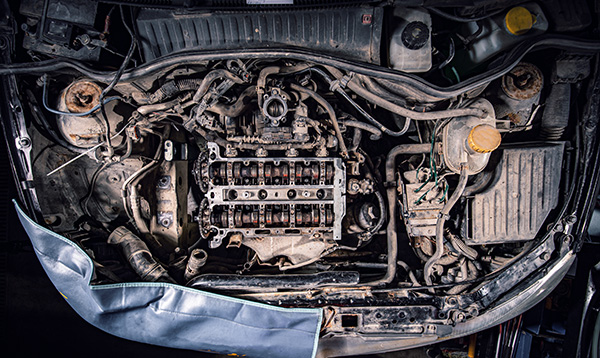
When it comes to choosing between diesel and gasoline engines, the debate often revolves around performance, efficiency, and cost. But what about maintenance? Whether you’re a long-time diesel enthusiast or prefer the ease of gasoline engines, understanding the differences in maintenance can help you make informed decisions about your vehicle. So, how does maintaining a diesel engine compare to caring for a gasoline-powered car?
Why Diesel and Gasoline Engines Differ
Diesel and gasoline engines may seem similar at a glance—they both rely on internal combustion to create power—but their design and operation are fundamentally different. Diesel engines compress air to extreme levels before injecting fuel, which ignites without the need for a spark plug. Gasoline engines, on the other hand, mix fuel with air before igniting the mixture with a spark. These differences mean their maintenance requirements vary significantly.
Diesel Engine Maintenance
Diesel engines are known for their rugged construction and long lifespans, but that doesn’t mean they’re maintenance-free. Their robust build is designed to handle high compression, but this also makes certain components, like fuel systems and filters, prone to wear over time.
One of the most critical aspects of diesel engine care is managing the fuel system. Diesel fuel contains more impurities than gasoline, which can clog filters and injectors if not regularly maintained. Replacing fuel filters and ensuring injectors are clean is essential to keep the engine running efficiently.
Oil changes are another priority. While diesel engines don’t require them as frequently as gasoline engines, their oil becomes thicker and dirtier due to soot production. Using high-quality oil specifically designed for diesel engines can prevent wear and tear on critical components.
Another consideration? Glow plugs. Unlike spark plugs in gasoline engines, glow plugs help diesel engines start in cold conditions. They last longer but should be checked periodically to ensure reliable performance.
Gasoline Engine Maintenance
Gasoline engines are generally lighter and less complex than diesel engines, which makes them easier (and often cheaper) to maintain. However, their faster engine cycles and reliance on spark plugs mean they require more frequent upkeep.
Routine oil changes are a staple of gasoline engine maintenance. Because these engines tend to run at higher RPMs, their oil degrades faster and needs replacing more often to prevent friction-related damage. Spark plugs are another regular replacement item, as they play a critical role in ignition.
The air filters in gasoline engines also require consistent attention. Unlike diesel engines, which have turbochargers to increase air intake, gasoline engines depend heavily on clean air filters to maintain performance. A dirty filter can restrict airflow, reducing efficiency and power.
Cost of Maintenance: Diesel vs. Gasoline
When comparing maintenance costs, diesel engines tend to be more expensive upfront due to specialized components and fluids. Parts like fuel injectors, glow plugs, and turbochargers often come with a higher price tag, and finding a qualified technician can add to the cost.
On the flip side, gasoline engines typically have lower per-visit costs, but the frequency of maintenance might tip the scales over time. The need for more regular oil changes, spark plug replacements, and other routine services can add up, especially if you put a lot of miles on your car.
Longevity and Performance Considerations
Diesel engines are the go-to choice for heavy-duty applications, and their longevity is unmatched when maintained properly. Many diesel vehicles can easily surpass 200,000 miles with minimal issues. This makes them ideal for drivers who prioritize durability and long-term value.
Gasoline engines, while less durable on average, offer a smoother driving experience with quicker acceleration and quieter operation. They’re perfect for drivers who want a low-maintenance vehicle for everyday commuting.
Which Engine is Right for You
The choice between diesel and gasoline ultimately depends on your driving habits and priorities. Diesel may be worth the higher maintenance costs if you value longevity and fuel efficiency. A gasoline engine might be the better fit if you prefer convenience and lower initial expenses.
What’s most important is staying on top of maintenance for whichever engine you choose. Neglecting regular care can turn even the most reliable engine into a costly headache.
Don’t wait for engine trouble to strike—trust Prestige Autohaus for all your maintenance needs. From oil changes to fuel system care, we’ll ensure your car stays road-ready. Contact us now!